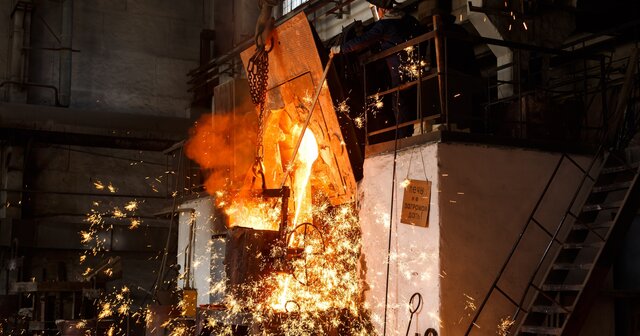
Few industries have received more protection from the federal government than the steel industry, with U.S. Steel being a major corporate beneficiary. But the favors didn’t help the company grow or become competitive. It has been declining and open to being bought out by another company.
Japanese-based Nippon Steel, surprisingly, came in with $21 billion offer. It would keep the U.S. Steel name, honor its existing union contracts and make investments needed to expand the company.
What’s not to like? Nippon wants to inject a significant amount of investment and Japan is a national ally.
But the deal ran into opposition from some labor unions and politicians. Former President Joe Biden blocked the sale. He preferred Ohio-based Cleveland Cliffs, which offered $8.8 billion.
If Biden’s preference goes through, U.S. Steel will get less than half of what it would have received from Nippon, and workers would go to a company that finds them less valuable. Recent developments make that idea look even worse, as Cleveland Cliffs announced plans to lay off 600 employees at its plant in Dearborn. President Trump then ordered a review of Cleveland Cliffs’ proposal, and Nippon may yet prevail.
It’s hard to follow the reasoning of those opposed to Nippon’s investment. This isn’t about tariffs or foreign production; it’s about a company investing billions in America. It isn’t about undue influence from foreign rivals. Japan supports American efforts to check the power of the People's Republic of China. And it’s a privately-owned, publicly-traded company with little or no ownership from foreign enemies.
The opposition to Nippon’s offer is the predictable result of economic nationalism masquerading as industrial policy. It’s the result of politicians overriding market signals in favor of political optics. So $21 billion that could help revitalize the U.S. steel industry sits on the sidelines.
The costs of economic nationalism do not fall on bureaucrats or politicians. They’re borne by steelworkers who will suffer from lost opportunities for increased wages, and by American consumers who pay more for less.
Permission to reprint this blog post in whole or in part is hereby granted, provided that the author (or authors) and the Mackinac Center for Public Policy are properly cited.
Get insightful commentary and the most reliable research on Michigan issues sent straight to your inbox.

The Mackinac Center for Public Policy is a nonprofit research and educational institute that advances the principles of free markets and limited government. Through our research and education programs, we challenge government overreach and advocate for a free-market approach to public policy that frees people to realize their potential and dreams.
Please consider contributing to our work to advance a freer and more prosperous state.

Donate | About | Blog | Pressroom | Publications | Careers | Site Map | Email Signup | Contact